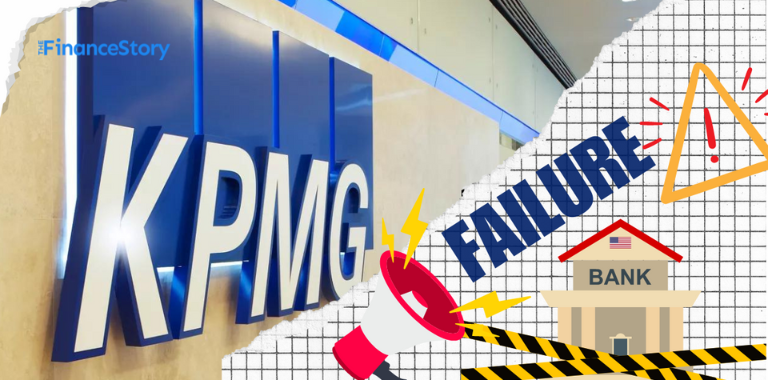- KPMG, one of the “Big 4” accounting firms, has recently come under scrutiny.
- Collapsed US banks, Silicon Valley Bank, Signature Bank, and First Republic Bank, were audited by KPMG.
- The situation has raised questions about the quality of KPMG’s work and its independence.
Three large US Banks collapse in just 2 Months
The first half of 2023 has been quite eventful for the Financial Services Industry.
Throughout March and April, the Financial Services Industry in the US witnessed three bank collapses – Silicon Valley Bank, Signature Bank, and First Republic Bank.
What’s interesting is that all three of these banks had one thing in common; they were all audited by KPMG.
One of the leading “Big 4” accounting firms, KPMG had given a clean bill of health to the financial statements of these banks.
With the downfall, and growing panic among clients, KPMG, the largest bank auditor in America, is now being criticized for its work.
KPMG signs off on the Audit Reports of SVB, Signature Bank, and First Republic Bank
These failures have cast a shadow over KPMG’s business, as the firm is the largest auditor of the US banking sector.
One of the most striking aspects of these failures is that in all three cases, KPMG had recently given the banks’ financial statements a clean bill of health.
Specifically, KPMG signed off on the audit report for Silicon Valley Bank’s parent company, SVB Financial Group, on February 24th.
However, just two weeks later, on March 10th, regulators seized the bank after a surge of withdrawals threatened to leave it short of cash.
Similarly, KPMG had approved the financial statements of Signature Bank shortly before its collapse. Signature Bank went down just 11 days after KPMG’s approval.
KPMG has defended its audits of SVB and Signature, stating that it stands behind the quality of its work, according to media reports.
However, criticisms of the firm have continued to mount, especially after the release of the Federal Reserve report on the collapse of Silicon Valley Bank and the forced sale of First Republic Bank to JP Morgan.
The Aftermath
Significant weaknesses in Silicon Valley Bank’s risk management and internal audit functions were revealed in the recent report released by the Federal Reserve.
That is why external auditors will be asked to assess both of these functions.
Not just that, but The Public Company Accounting Oversight Board (PCAOB) plans to increase its inspections in the Financial Services sector.
The PCAOB will also examine whether auditors had the necessary expertise to oversee complex institutions.
KPMG has been sued in federal court for its role as the auditor for Silicon Valley Bank and First Republic Bank.
The lawsuits accuse KPMG of failing to disclose concerns about the banks’ ability to continue as a going concern.
KPMG’s other huge clients in the US
According to a report by UK’s Financial Times, KPMG is the leading auditor of the US banking system by assets.
KPMG also holds a unique position as the auditor of more US banks than any of the other Big Four accounting firms.
Some of the significant banking clients of KPMG include Wells Fargo, Citigroup, Bank of New York Mellon, and also the Federal Reserve.
The banking sector is crucial to KPMG’s business, with publicly listed banks paying the firm more than $325 million in fees in 2021, according to reports.
In comparison, PwC, EY, and Deloitte received lower percentages of fees from the banking sector.
Closing
KPMG has faced accusations of deficient audits before.
The firm received a £17.3 million fine over its work on Carillion and Regenersis PLC, the second-largest fine imposed by the U.K.’s Financial Reporting Council.
The audit failures of KPMG have raised concerns about the quality of their work, particularly their independence.
Some Financial Experts are questioning whether the firm ignored or overlooked warning signs that could have indicated issues at the banks they were auditing.
Now, the question remains, “What will the long-term impact of these failures be on KPMG’s business and reputation?”
Looking for career advice? Book a 1:1 paid call with an industry expert. Fill up this form.







